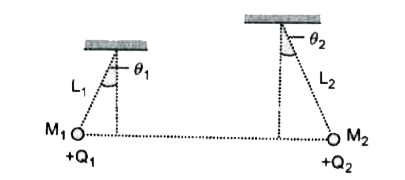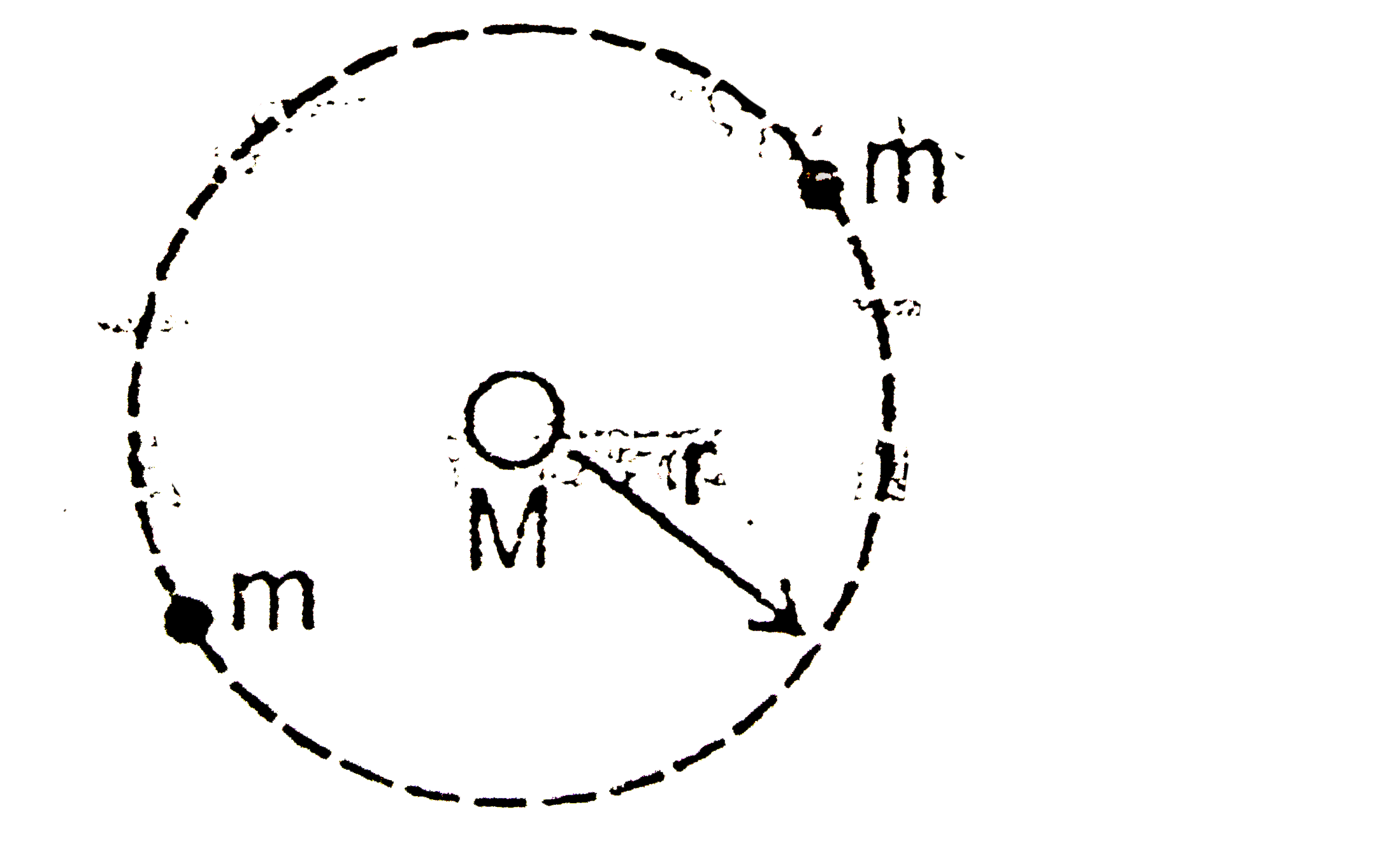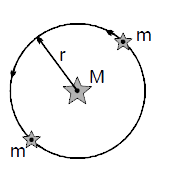Read the paragraph and answer the following questions.
Paragraph : Two stars P and Q each having mass M constitute a binary system. The stars revolves in circular orbits about their centre of mass under the effect of mutual gravitational force of attraction. The radius of orbit of star P is R. The dimensions of stars are negligible as compared to the separation between the stars.
The energy required to separate the two stars P and Q to infinite distance apart is Solution in Kannada
GM24R
GM23R
GM22R
2GM2R
The correct Answer is:A
Step by step video, text & image solution for Read the paragraph and answer the following questions. Paragraph : Two stars P and Q each having mass M constitute a binary system. The stars revolves in circular orbits about their centre of mass under the effect of mutual gravitational force of attraction. The radius of orbit of star P is R. The dimensions of stars are negligible as compared to the separation between the stars. The energy required to separate the two stars P and Q to infinite distance apart is by Physics experts to help you in doubts & scoring excellent marks in Class 12 exams.
Updated on:21/07/2023Topper's Solved these Questions
- GRAVITATIONBook:MODERN PUBLICATIONChapter:GRAVITATIONExercise:Multiple Choice Questions (LEVEL-III Questions From AIEEE/JEE Examination)
Explore 6 Videos
- GRAVITATIONBook:MODERN PUBLICATIONChapter:GRAVITATIONExercise:Recent Competitive Questions
Explore 8 Videos
- GRAVITATIONBook:MODERN PUBLICATIONChapter:GRAVITATIONExercise:Recent Competitive Questions
Explore 8 Videos
- ELECTROSTATICSBook:MODERN PUBLICATIONChapter:ELECTROSTATICSExercise:RECENT COMPETITIVE QUESTIONS
Explore 39 Videos
- HEAT AND THERMODYNAMICSBook:MODERN PUBLICATIONChapter:HEAT AND THERMODYNAMICSExercise:Recent Competitve Questions
Explore 17 Videos
Similar Questions
Two bodies of masses m and 4 m are placed at a distance r. The gravitational potential at a point on the line joining them where the gravitational field is zero is :
View SolutionAn astronaut on a strange planet finds that acceleration due to gravity is twice as that on the surface of earth. Which of the following could explain thin ?
View SolutionAn astronaut on a strange planet finds that acceleration due to gravity is twice as that on the surface of earth. Which of the following could explain thin ?
View SolutionTwo small spheres of masses M1andM2 are suspended by weightless insulating threads of lengths L1andL2 The spheres carry charges Q1andq2 respectively . The spheres are suspended such that they are in level with one another and the threads are inclined to the vertical at angles of θ1andθ2 as shown . Which one o fthe following conditions , if θ1=θ2 ?

View SolutionThe temperature of a gas contained in a closed vessel of constant volume increases by 1∘C when the pressure of the gas is increased by 1%. The initial temperature of the gas is:
View SolutionA double star is a system of two stars of masses m and 2m, rotating about their centre of mass only under their mutual gravitational attraction. If r is the separation between these two stars then their time period of rotation about their centre of mass will be proportional to
View SolutionAn isolated triple star systerm consists of two identical stars, each of mass m and f fixed star of mass M. They revolve around the central star in the same circular orbit to radius r. The orbiting stars are always at opposite ends of a diameter of the orbit. The time period of revolution of each star around the fixed is equal to:

View SolutionBinary stars rotate under mutual gravitational force at separation 2(Gω2)13, where ω is the angular velocity of each of the star about centre of mass of the system. If difference between the mass of stars is 6 units. Find the ratio of mass of bigger star to smaller star.
View SolutionA star of mass M (equal to the solar mass) with a planet (much smaller than the star) revolves around the star in a circular orbit. The velocity of the star with respect to the center of mass of the star-planet system is shown below :
View SolutionA system consists of two stars of equal masses that revolve in a circular orbit about their centre of mass . Orbital speed of each star is v and period is T . Find the mass M of each star . (G is gravitational constant )
View SolutionA certain triple-star system consists of two stars, each of mass m, revolving about a central star, mass M, in the same circular orbit. The two stars stay at opposite ends of a diameter of the circular orbit, see figure. Derive an expression for the period of revolution of the stars, the radius of the orbit is r.

View SolutionRead the paragraph and answer the following questions.
Paragraph : Two stars P and Q each having mass M constitute a binary system. The stars revolves in circular orbits about their centre of mass under the effect of mutual gravitational force of attraction. The radius of orbit of star P is R. The dimensions of stars are negligible as compared to the separation between the stars.
The orbital speed of star Q is :
View SolutionA double star is a system of two stars rotating about their centre of mass only under their mutual gravitational attraction. Let the stars have masses m and 2m and let their separation be 1. Their time period of rotation about their centre of mass will be proportional to a) 1^(3//2) b) a c) m d) m^(-1//2)
View SolutionA triple star system consists of two stars each of mass m in the same circular orbit about central star with mass M=2xx10^(33)kg . The two outer stars always lie at opposite ends of a diameter of their common circular orbit the radius of the circular orbit is r=10^(11) m and the orbital period each star is 1.6xx10^(7)s [take pi^(2)=10 and G=(20)/(3)xx10^(-11)Mn^(2)kg^(-2) ] Q. The orbital velocity of the outer stars is:
View SolutionA binary star system consists of two stars of masses m and 2 m. The separation between the centres is L. They revolve about the centre of mass of the system under their mutual gravitational interaction force.
Heavier star revolves in an orbit of radius
View Solution

